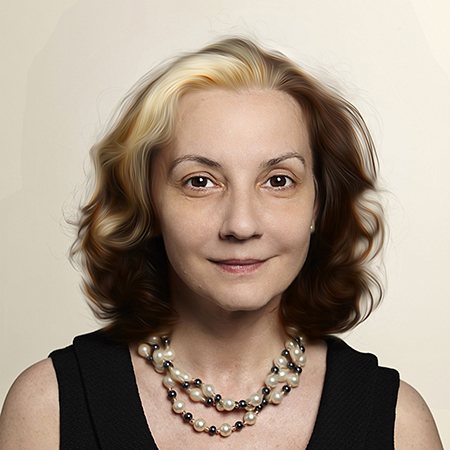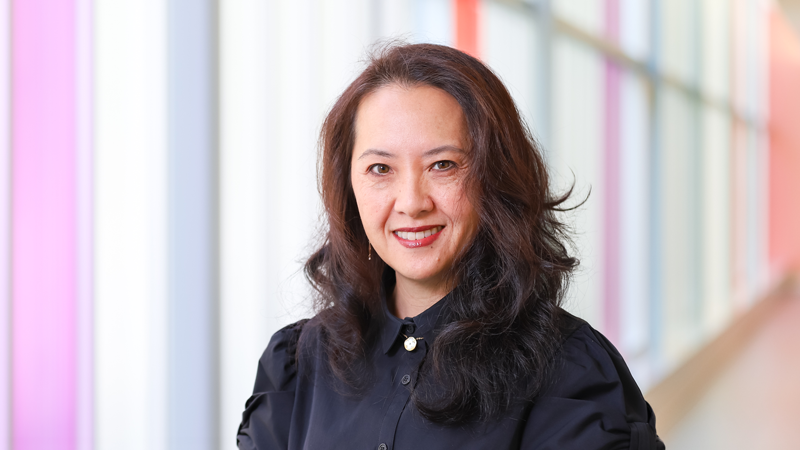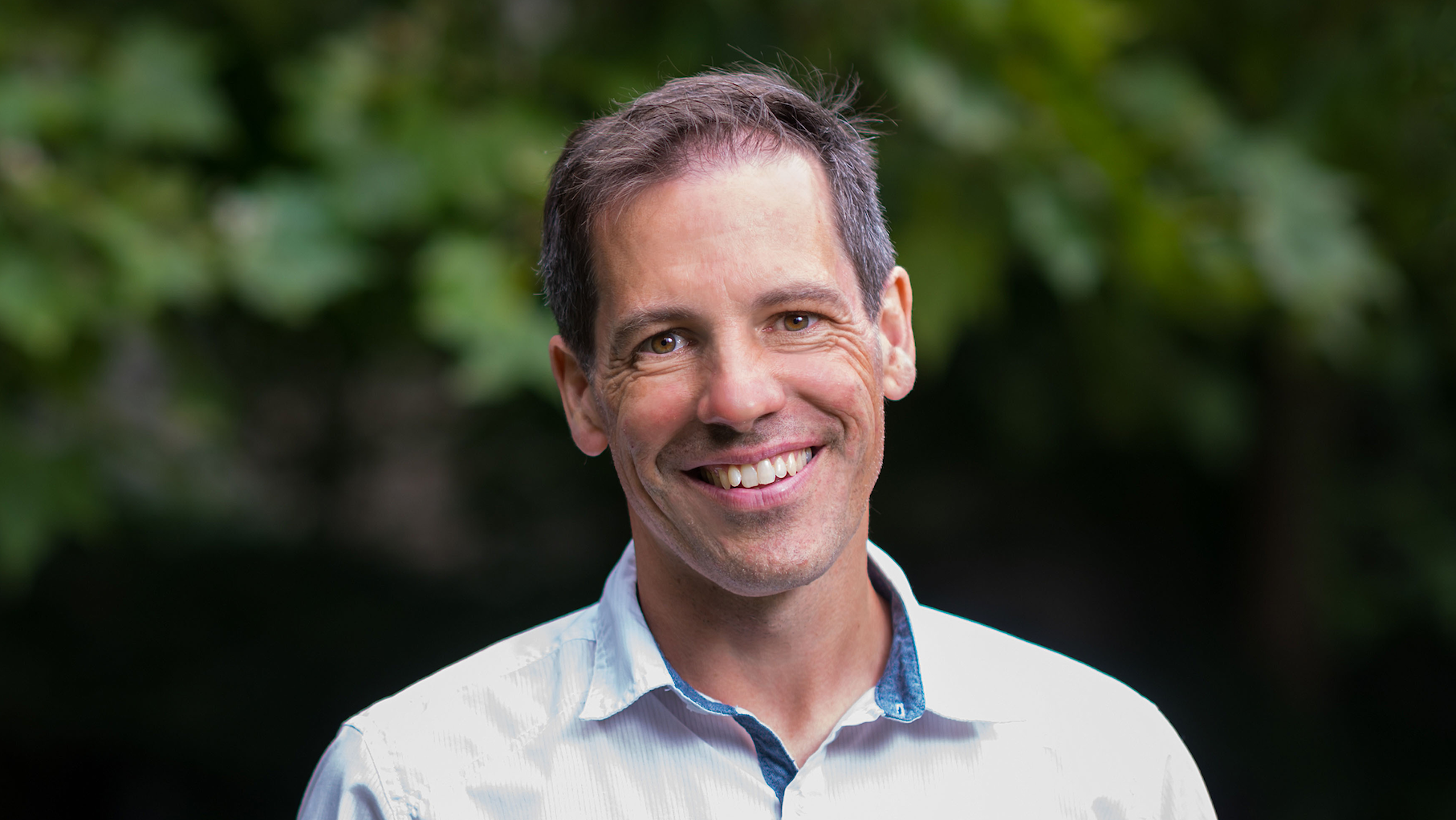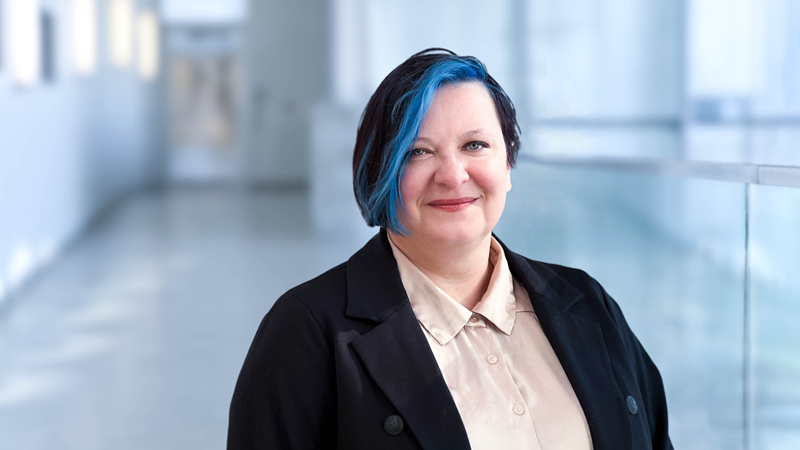
Dr. Sophia Frangou is the inaugural UBC President’s Excellence Chair in Brain Health. She has made major contributions to understanding the role of brain structure and function for mental health, and particularly to mechanisms promoting resilience to genetic risk to mood and psychotic disorders and to adversity.
Dr. Frangou is the recipient of many honours and awards including the Colvin Prize for Outstanding Achievement in Mood Disorders Research by the Brain and Behavior Research Foundation and the Teaching Award in Biological Psychiatry by the Society for Biological Psychiatry
Dr. Frangou is an influential advocate for diversity in academic psychiatry with specific focus on closing the gender gap in publishing, funding and leadership. She is the editor and author of “Women in Academic Psychiatry: A Mind to Succeed.”
What advice would you give women wanting to pursue a career in scientific research?
This is a two-part answer. First, it is important that we move away from stereotypes of success. Having a career is not the pinnacle of human existence. Empowerment means freedom to choose something you really like, something that excites you and gives meaning to your life. Then you have to figure out how to make it happen for you. So my general advice, for men and women, could be summed up as “Choose with your heart and plan with your head.”
Second, academic life presents with many challenges, but women face additional hurdles rooted in implicit societal preconceptions; things are changing for the better but at a slow pace. Success in academia depends on putting yourself forward (as opposed to waiting to be asked), putting yourself first (as opposed to prioritizing the needs of others) and promoting your own work (as opposed to letting the work speak for itself). Many women feel uncomfortable with all three but overcoming these internal barriers is critical if we are to close the gender gap in academia.
Who inspires you and why?
Inspiring people are all around us. Every day, I am reminded of the resilience of the human spirit as I witness the great fortitude and dignity people show when faced with the many challenges of mental disorders.
Amongst the scientific community, my hero is Marie Curie and I keep a picture of her in my office. I “met” Madame Curie when I was at primary school. I read her biography, written by her daughter Eve, and I was immediately and indelibly struck by the brilliance, resilience and humanity of this woman.
What sparked your interest in brain research?
The brain is the “ultimate frontier.” I am awestruck by its breathtaking beauty and astonishing complexity. It was only towards the last decade of the last century that the living human brain became accessible to direct empirical investigation. This coincided with the time I entered psychiatry and I could not pass up the opportunity to become a “brain explorer.” My personal research has since been intertwined with the rapid technological advances that give us new tools to address old and fundamental questions about the relationship between the brain and the mind, and about the influences of our genetic blueprint and environmental exposures on brain organization and function across the lifespan.
First job:
My first job was as a trainee psychiatrist at the Maudsley Hospital and the Institute of Psychiatry in London, UK. The Maudsley was created following a bequest by Henry Maudsley, one of Britain’s foremost mental scientists of the Victorian Era. His vision, which was revolutionary for his time, was to create a hospital dedicated exclusively to the care of the mentally ill combined with a university unit focused on teaching and research in mental conditions.
The Maudsley opened in 1927 and was probably the first center ever to integrate clinical care and research in psychiatry. It has since become an iconic institution because of its continued excellence and innovation in all fields of psychiatry. During my time, the Maudsley was home to some of the legends of our field. It was a dream job and a wonderful spring board for my own career in psychiatry.
What are the major challenges of psychiatry today?
Our field faces the twin challenges of discovery and implementation. On the discovery side, there is great societal pressure to find simple causes for mental illnesses and develop effective cures; like penicillin for infections.
We tend to disregard the great progress that has been made towards a better understanding of the causes of mental disorders because what we have discovered is that these disorders have complex genetic and environmental causes and are not amenable to easy fixes. In this respect, psychiatry is no different from cardiovascular medicine or cancer where scientists and clinicians are also trying to identify specific causal pathways within a maze of interacting risk factors. However, technological advances are giving us new tools, some beyond what we could have ever imagined a few years ago, so this is a great time for brain explorers who are brave enough to take on the challenge of complexity.
At the same time, we do know a lot about how to prevent mental illness and how to treat people suffering from mental problems. We do not have perfect answers but there is much we can do, such as focusing on common risk factors associated with social adversity and improving the assessment of patients using neuroscience tools that are already available.
So immediate improvements are possible but they require substantial change in the way we train the new generation of clinicians and in the way we deliver services. In order to deliver next-generation services, we need societal investment which has not traditionally been as available for mental health as for other aspects of medicine. This means that advocacy and engagement with public health policy are vital for advancing mental health.
How to do like to recharge?
Sleep is a great favourite; it’s the time when all the “good plasticity” happens in the brain, especially in consolidating and strengthening connections between brain cells.
Best piece of advice?
This comes from a poem called “Go to the limits of your longing” by Rainer Maria Rilke and it goes like this: “Let everything happen to you: beauty and terror. Just keep going. No feeling is final.”
What are your main goals and aspirations?
What makes science so exciting is that you follow a path but you can never really fully predict where it may lead you; discovery is by its very nature surprising because you find something new which is often unexpected. I hope that as part of this process I will be able to make a positive impact on people’s mental health.
Published: March 2020


